RealClearInvestigations below presents an updated chronology focusing on what federal authorities did and did not do about alleged Biden family corruption. The House impeachment inquiry now under way has already produced a timeline of the Bidens' alleged influence-peddling. The updates presented here cover the fall of 2023 to the present.
RCI’s timeline dating back to 2018 continues here.
Jan. 12, 2024: Through his lawyer, Hunter Biden yields to GOP demands to testify as part of the impeachment inquiry into his father.
Jan. 11: Hunter Biden pleads not guilty to tax offenses in Central District of California.
Jan. 10: The Republican-led House impeachment inquiry moves to hold Hunter Biden in contempt of Congress for not testifying -- after the presidential son sets off chaos with an unexpected appearance at the hearing that defied House subpoenas. After such votes, the full House generally holds a vote to direct the certification of contempt to a U.S. attorney.
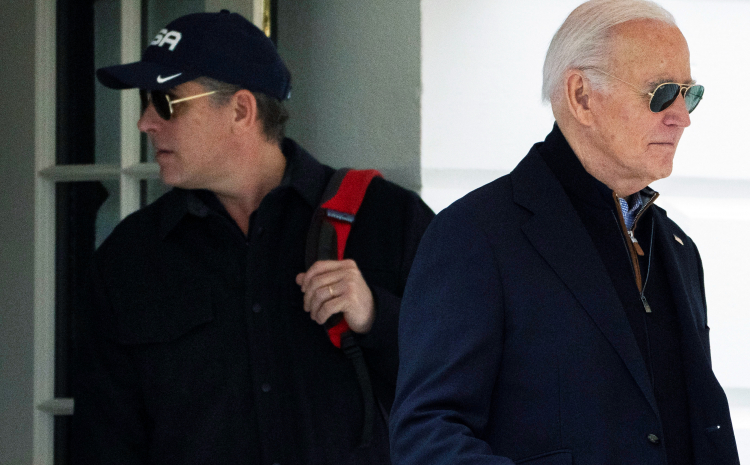
Jan. 5: U.S. Supreme Court agrees to hear former President Trump’s challenge to Colorado Supreme Court ruling disqualifying him from appearing on the 2024 presidential primary ballot.
Dec. 27, 2023: House Oversight and Judiciary Committees issue letter to White House counsel indicating impeachment inquiry will expand to encompass whether President Biden engaged in a conspiracy to obstruct a proceeding of Congress. The letter was prompted by the president’s reported interactions with son Hunter before the latter’s defying congressional subpoenas to appear for a deposition two weeks earlier.
Dec. 22: U.S. Supreme Court denies the prosecution an expedited ruling on Donald Trump’s claim of presidential immunity in the January 6 Capitol siege case against him. This blocks Special Counsel Jack Smith’s bid to preserve the Department of Justice’s desired March 2024 mid-election year trial date.
Dec. 19: Colorado Supreme Court disqualifies Trump from appearing on the 2024 presidential primary ballot. It cites Section 3 of the 14th Amendment, which bars from office any prior “officer” of the U.S. who “engaged in insurrection.” Trump’s legal team indicates it will appeal this decision to the U.S. Supreme Court.
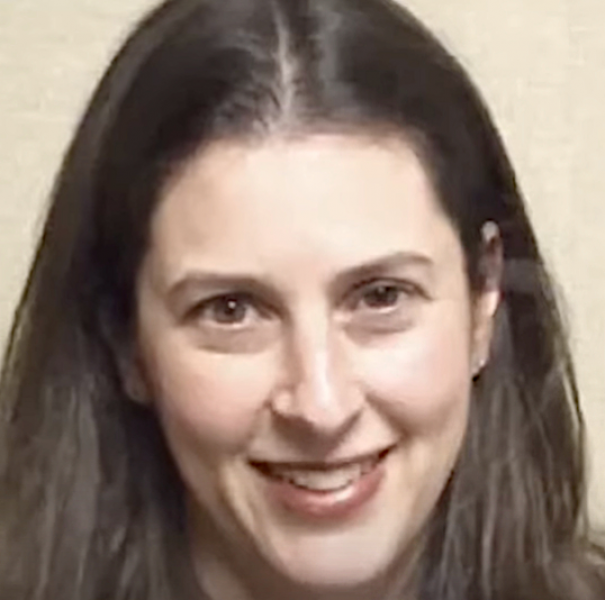
Dec. 14: Former Delaware Assistant U.S. Attorney Lesley Wolf, implicated in much of the alleged Justice Department obstruction in the Hunter Biden case, appears for a transcribed interview before the House Judiciary Committee. Reporting on the testimony suggests that under advisement by the DOJ, Wolf said she was “not authorized” to respond to questions 79 times. Reports indicate Wolf left the Justice Department several weeks before her testimony.
Dec. 13: Hunter Biden defies congressional subpoenas to appear before House impeachment investigators. In a public statement delivered on Capitol Hill (photo at top), he seems to alter the story about his father’s nexus to the Biden family’s dealings, indicating the president was not “financially involved” with Hunter’s business.
Chairmen James Comer and Jim Jordan issue a joint statement indicating they will begin contempt of Congress proceedings against the president’s son.
That same day, the House formalizes its impeachment inquiry, arguing the step will help strengthen its position legally.
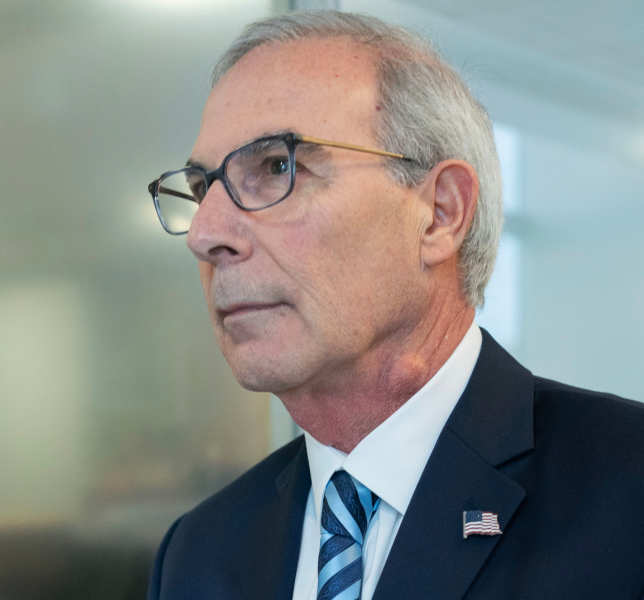
Dec. 11: Hunter Biden’s lawyers move to dismiss federal gun charges filed in Delaware that alleged he lied about his drug use to buy a gun. Among their contentions:
- The pretrial diversion agreement granting the president’s son immunity remains operative – despite Justice Department arguments to the contrary – nullifying the Delaware charges;
- Hunter Biden is the victim of “selective and vindictive prosecution,” the idea being the Justice Department succumbed to pressure from congressional Republicans to bring the charges;
- Special Counsel David Weiss was appointed in violation of Justice Department regulations requiring such a prosecutor to come from outside the government, and is operating without funds having been properly appropriated, rendering Weiss’ office’s work illegitimate;
- The gun charges are unconstitutional based on a conservative reading of the Second Amendment, including under the 2022 Bruen Supreme Court opinion President Biden has decried.
Dec. 7: Special Counsel Weiss issues a nine-count indictment against Hunter Biden in California, alleging three felonies and six misdemeanors covering crimes including alleged tax evasion and fraud. These charges likely overlapped the ones the Biden-appointed U.S. Attorney for the jurisdiction, E. Martin Estrada, had declined to permit Weiss to bring before his appointment as special counsel.
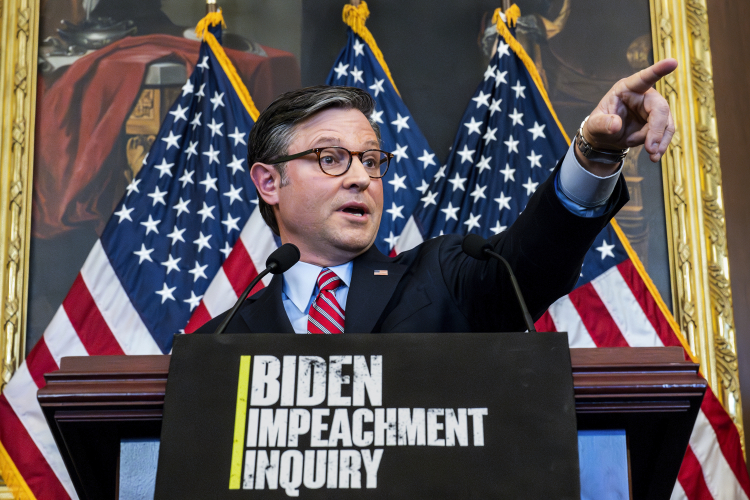
Dec. 5: IRS whistleblowers Gary Shapley and Joseph Ziegler appear before the House Ways and Means Committee for a closed-door hearing in which they provide additional detail and documents substantiating their claims of alleged slow-walking, obfuscation, and obstruction in the Hunter Biden case.
The Committee also releases evidence indicating that then-Vice President Biden “used multiple email aliases and private email addresses to communicate with his son’s business associate and main financial architect [Eric Schwerin], directly refuting previous public statements the President has made that he had no knowledge of his son’s business dealings.”
That same day, the committees leading the House impeachment inquiry release a joint interim report on the DOJ’s “deviations from standard processes in its investigation of Hunter Biden.” The committees argue their findings corroborate the IRS whistleblowers’ claims. They also argue the Justice Department is not cooperating with their investigation, including in preventing key DOJ tax witnesses from testifying despite having been compelled to do so via subpoena.
Also that day, Speaker of the House Mike Johnson announces the full House will vote to formalize the impeachment inquiry.
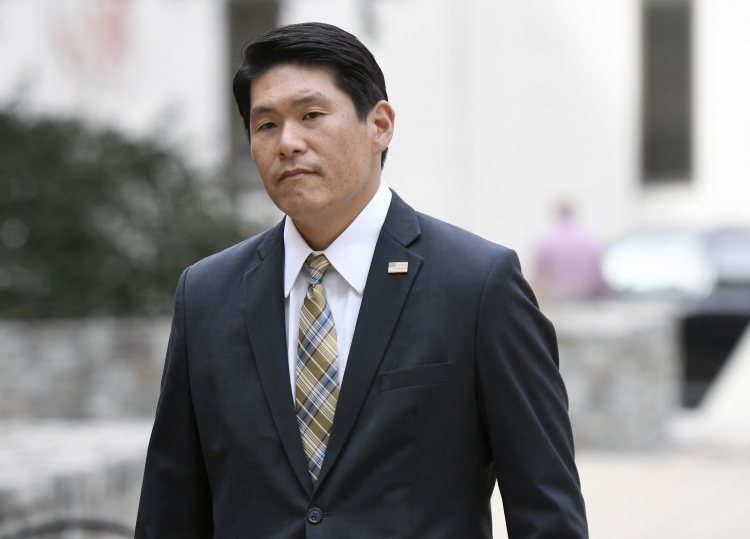
Nov. 21: House Judiciary Committee issues subpoena compelling Delaware Assistant U.S. Attorney Wolf to appear for a deposition in connection with the House impeachment inquiry, following several voluntary requests the Department of Justice rebuffed.
Nov. 16: Reports indicate Special Counsel Weiss convenes a Los Angeles grand jury and issues subpoena to President Biden’s brother James in connection with the Hunter Biden case.
That same day, CNN reports that Special Counsel Hur is not expected to bring charges in the inquiry into whether Joe Biden mishandled classified documents.

Nov. 9: Chairman Comer issues subpoenas to Hunter Biden business associates compelling their interviews, including, among others, business partner Eric Schwerin, Hunter’s art gallerist George Bergès; art buyer and member of the President Biden-appointed U.S. Commission for the Preservation of America’s Heritage Abroad Elizabeth Hirsh Naftali; and longtime Biden donor and auto magnate John Hynansky. RealClearInvestigations’ Paul Sperry has reported that Hynansky appears to have benefited from Biden-backed U.S.-Ukraine policies. Several weeks later, Naftali’s great-niece, Abigail Mor Idan, a dual U.S.-Israeli citizen whose parents were murdered by marauding jihadists in southern Israel on Oct. 7, will become the first American released during a negotiated pause of the Israel-Hamas war.
Nov. 7: Special Counsel Weiss testifies privately before the House Judiciary Committee. Subsequent reporting suggests Weiss testified he had authority to bring charges against Hunter Biden where he saw fit, despite not bringing those charges nor initially asking for special attorney or special counsel authority after D.C. and Central District of California U.S. Attorneys declined to partner with him on cases. While Weiss declined to respond to numerous questions, he indicated he would be issuing a report at the end of his tenure addressing his office’s interactions with former U.S. Attorney for the Western District of Pennsylvania Scott Brady. Brady was tasked with looking into Biden business dealings in Ukraine; Weiss’s decisions not to bring charges before statutes of limitation lapsed for the 2014-2015 years when Hunter sat on the board of Ukrainian energy company Burisma; and a criminal referral Weiss’s team received regarding lawyer Kevin Morris’s payment to Hunter of nearly $5 million to cover outstanding taxes.
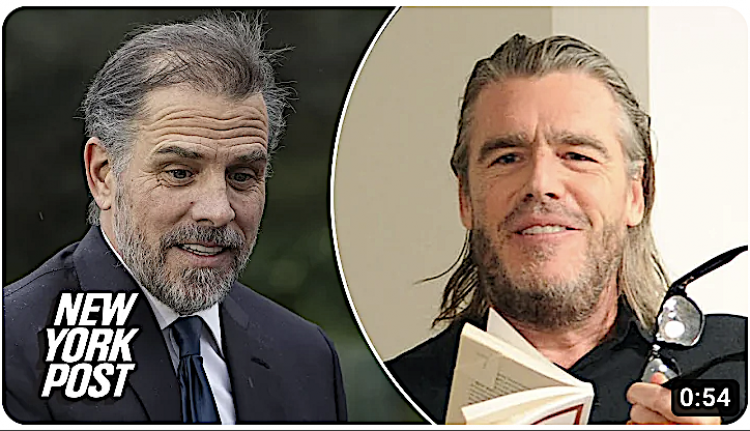
Oct. 30: House Oversight Committee reveals that in July 2019, months after Joe Biden had announced his run for president, Hunter Biden received $250,000, characterized as a loan, from a Chinese business associate, wired using Joe Biden’s Delaware house as the beneficiary address. Morris, who would provide millions in financial support for Hunter, would assume the debt for him.
That same day, the National Archives and Records Administration reveals in response to a freedom of information lawsuit that it has found 82,000 pages of emails then-Vice President Joe Biden sent or received via three private pseudonymous accounts during his tenure. It vows to produce relevant records.
Oct. 25: Senior Department of Justice tax official Stuart Goldberg sits for a transcribed interview with the House Judiciary Committee. According to reports, Goldberg says Hunter Biden’s case received “closer supervision” than most, and that to bring charges in such a case would require signoff from senior DOJ tax officials, contradicting claims Weiss had full authority to bring charges.
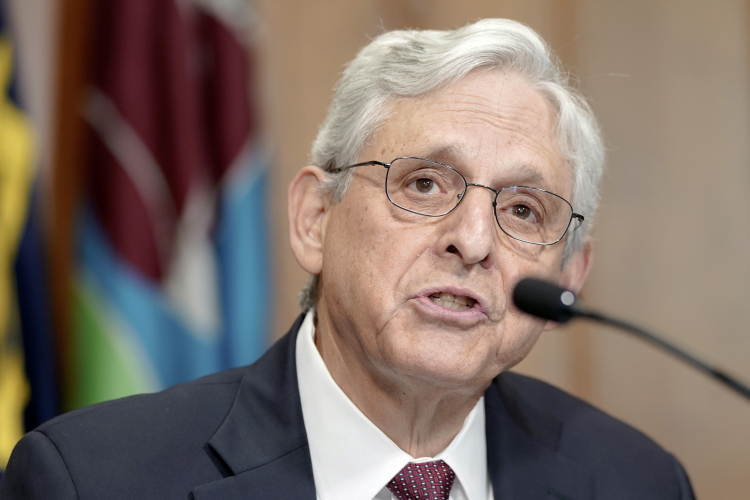
Oct. 24: Sen. Grassley issues a battery of record requests and questions to Attorney General Merrick Garland and FBI Director Christopher Wray concerning whistleblower claims indicating “there appears to be an effort within the Justice Department and FBI to shut down investigative activity relating to the Biden family.” Grassley says evidence indicates there is “significant political bias infecting the decision-making of not only the Attorney General and FBI Director, but also line agents and prosecutors.”
Also that day, U.S. Attorney Estrada sits for a transcribed interview with the House Judiciary Committee.
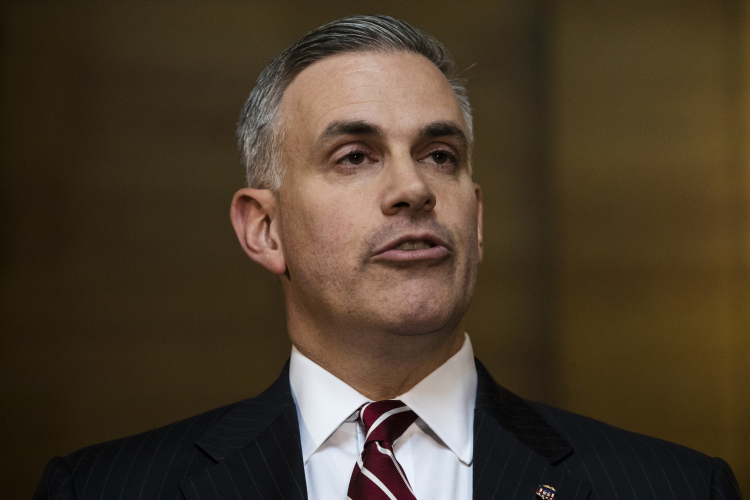
Oct. 23: Former U.S. Attorney for the Western District of Pennsylvania Brady outlines numerous ways the FBI and DOJ impeded his efforts, according to reporting by those who reviewed the unpublished transcript of his deposition to the House Judiciary Committee. In January 2020, Brady was tasked by then-Attorney General Bill Barr with vetting evidence of Biden family corruption in Ukraine. Subsequent reporting indicates that Weiss’ office ignored Brady’s compelling case to pursue the matter.
Oct. 20: Chairman Comer releases evidence Joe Biden received a $200,000 check from brother James Biden and his wife Sara in March 2018, characterized as a “loan repayment.” That same day, Americore, a failing rural hospital operator, had wired what was characterized as a $200,000 loan to James and Sara Biden – one of several such payments totaling $600,000 that year in exchange for Biden’s promise to “open doors” using the Biden last name for the concern, including “obtain[ing] a large investment from the Middle East based on his political connections,” according to bankruptcy documents. Six days later, Comer sends a letter to White House counsel asking for supporting loan documents and applicable IRS filings regarding the purported $200,000 repayment.
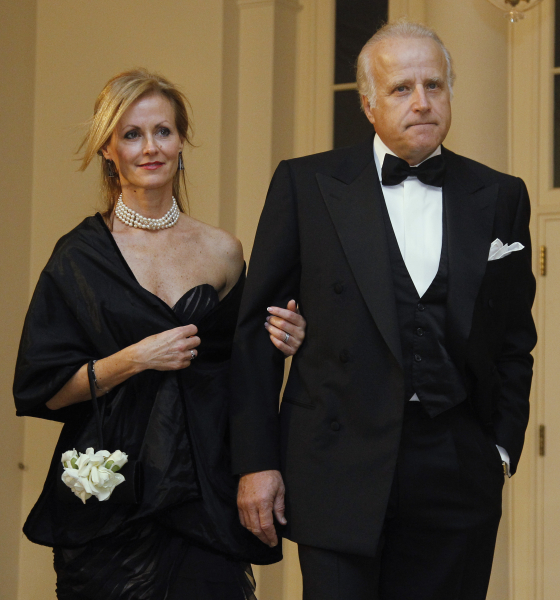
Oct. 16: Comer asks Special Counsel Robert Hur for documents pertaining to “concerns that President Biden may have retained sensitive documents related to specific countries involving his family’s foreign business schemes that brought in millions for the Biden family.”
Oct. 11: Comer informs White House Counsel Edward Siskel that Joe Biden provided an “incomplete and misleading” timeline regarding his alleged mishandling of classified documents held insecurely at the Penn Biden Center’s Washington, D.C. office. According to Comer, the White House’s timeline “omitted months of communications, planning, and coordinating among multiple White House officials, Ms. [Kathy] Chung, Penn Biden Center employees, and President Biden’s personal attorneys to retrieve the boxes containing classified materials. The timeline also omitted multiple visits from at least five White House employees … and an unknown staffer. There is no reasonable explanation as to why this many White House employees and lawyers were so concerned with retrieving boxes they believed only contained personal documents and materials.”
Oct. 8-9: Joe Biden sits for a voluntary interview with Special Counsel Hur in connection with his investigation of Biden’s potential improper retention of classified documents from his time as senator and vice president.
Oct. 7: Though not reported until nearly a month later, Hunter Biden’s attorneys draft letter to Biden-appointed Washington D.C. U.S. Attorney Matthew Graves calling on him to investigate former business associate Tony Bobulinski for lying to the FBI about Hunter and Bobulinski’s relationship during an October 2020 interview
Oct. 3: Graves testifies during a closed-door hearing before the House Judiciary Committee regarding his interactions with his Delaware counterpart Weiss concerning the possibility of bringing charges in his jurisdiction in early 2022. Graves indicates it was he who had raised the possibility of partnering with Weiss to bring charges.
Sept. 28: Comer issues three subpoenas for Hunter and James Biden’s personal and business bank records.







